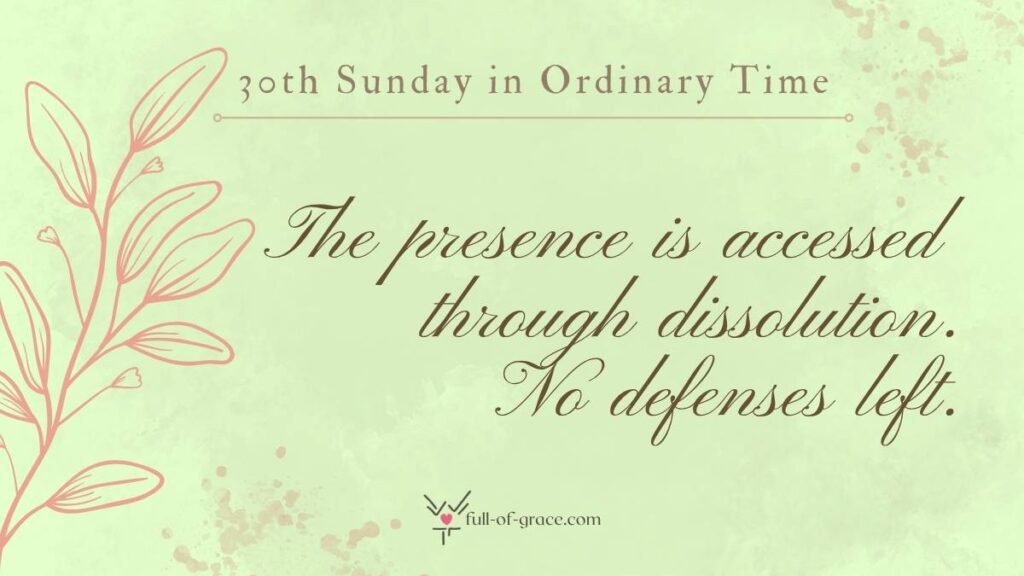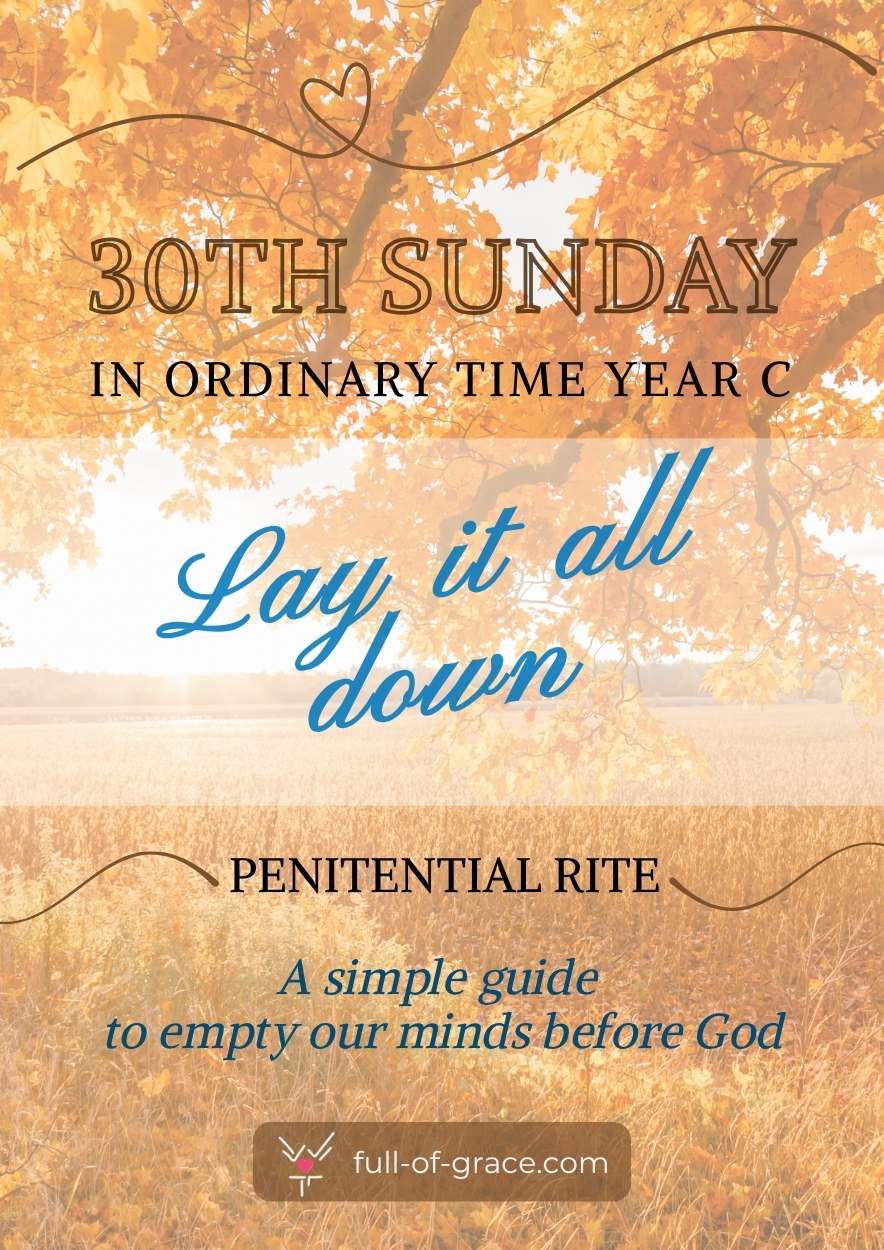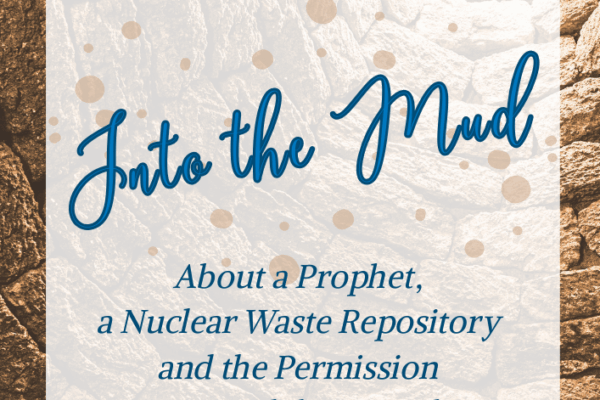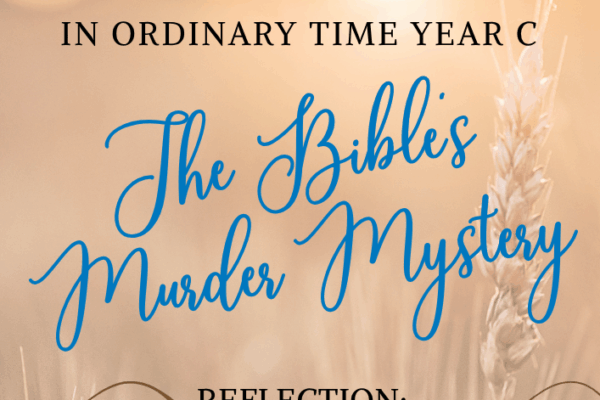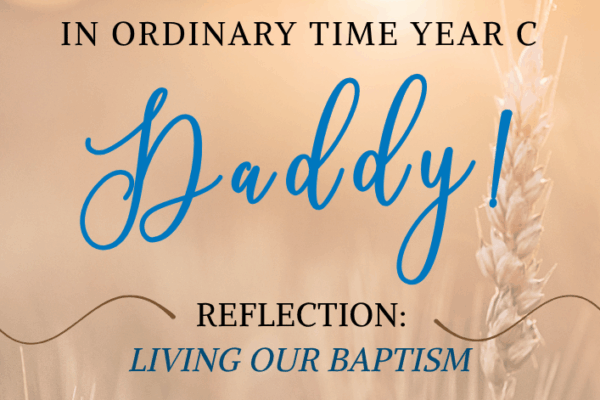FOR THE LEADER:
We’re doing this practice WITH the community, not TO the community, so let us use “we” language throughout. Let us warm, even playful tone at the beginning. This isn’t heavy penance—it’s honest inventory. We’re creating space for encounter, not inducing guilt.
Key principle: We’re PARKING things, not discarding them. They’ll be there after Mass if people want to pick them back up. This isn’t permanent transformation—it’s temporary emptying so there’s space for God.
Your preparation: Try this yourself before leading it. Actually close your eyes, imagine your two bags, notice their texture and weight. Lead from your own experience.
THE TRAP: If you’re not a body-centred practitioner yourself—there’s a trap waiting. When people imagine their “bags” (especially the shameful ones), they’ll immediately want to INTERPRET: “What does this mean? Why is mine dark/light/heavy?”
Your job: CUT THAT OFF. Notice, name, move on. Don’t let people spiral into analysis. The body knows things; the mind tries to explain them away. Trust the body, bypass the mind.
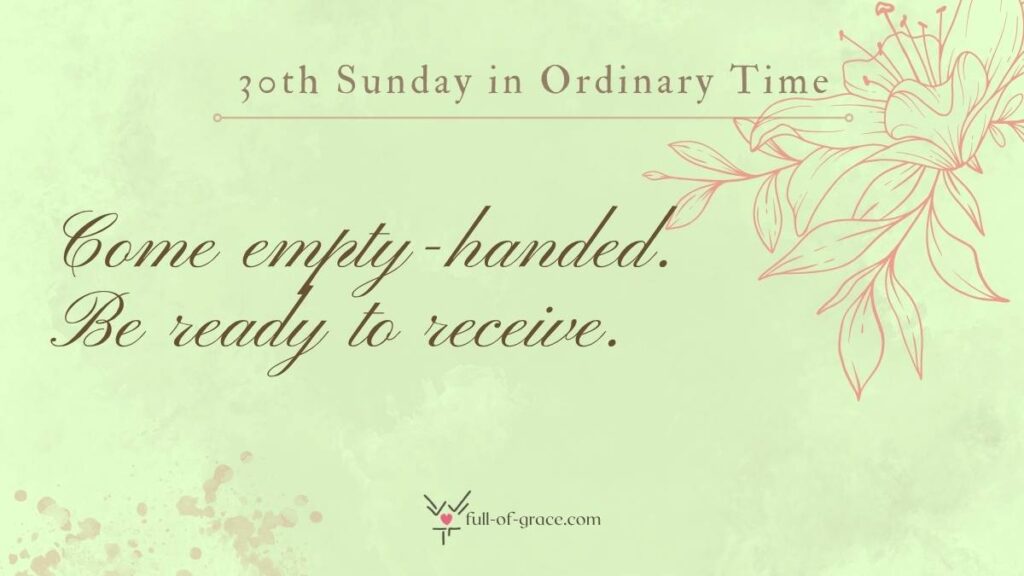
THE RITE
Before we hear God’s Word and approach God’s table,
let’s take a moment to notice: How did WE arrive today?
What are WE bringing?
We’ve all had a week—some good moments, some difficult ones.
We’re carrying things. We always are.
And God doesn’t mind—but let’s just notice what we’re holding.
Close your eyes if that feels comfortable, or lower your gaze.
(pause 5 seconds)
Take a breath. Feel your feet on the ground.
We’re here. We made it. We got out of bed and showed up.
That counts for something.
(pause 5 seconds)
Now, imagine you’re holding something in your left hand.
A bag, a box, a suitcase—whatever image comes.
This is everything from this past week that went WELL.
The moments that filled you with joy, with pride, with “I did good.”
Maybe something you accomplished. Someone you helped. A decision you’re glad you made.
What does this bag look like?
Is it colorful? Heavy? Light?
What’s the texture? Smooth? Rough?
Just notice.
(pause 10 seconds)
Good. Now feel the weight of it in your left hand.
These ARE good things. Real things.
We give thanks to God for them—
for the grace that made them possible,
for the strength we were given,
for the moments when we showed up well.
Thank you, God, for these gifts.
(pause 10 seconds)
Now—and here’s the interesting part—
we’re going to SET THIS BAG DOWN.
Not throw it away. Not reject it.
Just… park it.
Put it on the ground beside you.
It’ll be there after Mass if you want to pick it up.
But for this hour, let’s not carry it.
Let’s come to God’s table with empty hands.
So gently, set it down.
Feel your left hand becoming lighter.
(pause 10 seconds)
Good.
Now, your right hand.
In your right hand, imagine you’re holding something else.
Another bag, another box.
This one holds everything from the past week that DIDN’T go well.
The moments you wish you could do over.
The times you fell short, hurt someone, made a choice you regret.
The shortcomings. The missed opportunities.
What does THIS bag look like?
Heavy? Dark? Worn?
Just notice. No judgment.
(pause 10 seconds)
Feel the weight of it.
These things are real too.
We’re not pretending they don’t exist.
But we’re also not going to carry them into this liturgy.
So look at what’s in this bag—
the mistakes, the regrets, the “I could have done better”—
and say quietly in your heart:
“God, I’m sorry. I need your mercy here.”
(pause 10 seconds)
And now, set THIS bag down too.
Park it beside the other one.
It’ll be there after Mass if you need to deal with it.
But for now, let your right hand become empty.
(pause 10 seconds)
Look:
Both hands empty.
Both bags on the ground beside you.
We’ve parked our pride AND our shame.
Our achievements AND our failures.
Everything we think makes us deserving OR undeserving.
We’re setting it all down—just for this hour.
(pause 10 seconds)
Because here, in this space,
it’s not about what we’re carrying.
It’s about Who’s holding us.
This is the space outside of time.
We can pick those bags back up later if we want.
But right now, we’re just HERE.
Empty-handed.
Ready to receive.
So:
Lord, have mercy.
(All respond: Lord, have mercy.)
Christ, have mercy.
(All respond: Christ, have mercy.)
Lord, have mercy.
(All respond: Lord, have mercy.)
May almighty God have mercy on us,
forgive us our sins,
and bring us to everlasting life.
Amen.
(Proceed to Gloria)
PRACTICAL NOTES
Timing: This takes 3-4 minutes total. Longer than standard penitential rite, but that’s the point—we’re actually DOING something, not just reciting.
If people seem restless: That’s okay. Not everyone will engage. Some will think it’s silly. That’s fine—they can just sit quietly. You’re creating space for those who WANT to engage.
The “parking” metaphor is key: This isn’t demanding people give up their identities or instantly transform. It’s just: “For this hour, let’s not be defined by what we did or didn’t do. Let’s just BE here.”
For leaders who feel awkward: Practice it at home first. Actually imagine your own two bags. Notice their weight. Set them down. Then you can lead from experience, not just instruction.
The lightness matters: Starting with “We made it. We got out of bed. That counts for something” and acknowledging God won’t be angry—this creates some sense of safety. People can actually examine themselves when they don’t feel judged.
Adaptable for other Sundays: This format works whenever you’re dealing with polarities, contrasts, or the tension between worthiness/unworthiness. Or parking our matters: past and future, fears and desires. Entering new season empty-minded etc.
